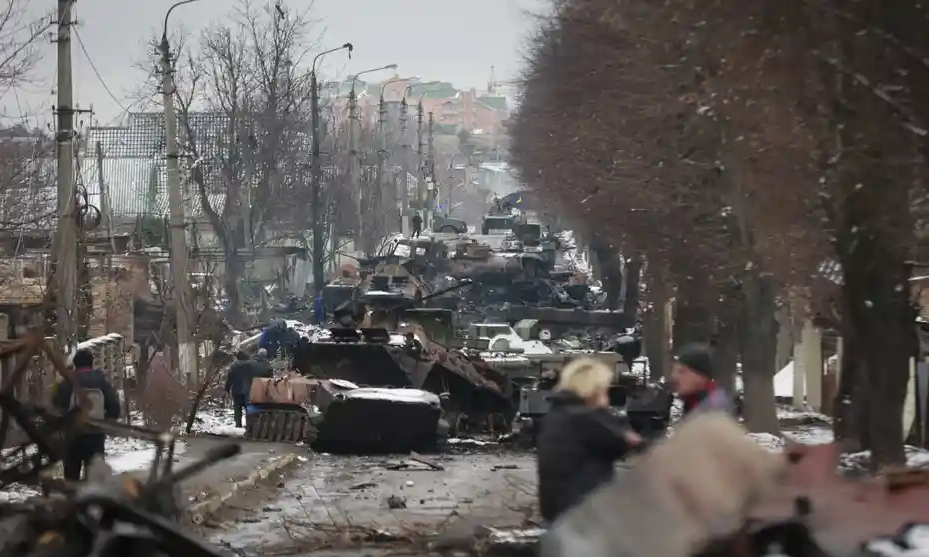Jin Liangxiang, Senior Research Fellow, Shanghai Institute of Int'l Studies
Mar 22, 2022
Arab countries in particular will play an important role as event in the Russia-Ukraine conflict disrupt economic patterns. They may see an opportunity to regain stature in the international arena.

Zhao Minghao, Professor, Institute of International Studies at Fudan University, and China Forum Expert
Mar 22, 2022
China-U.S. relations are feeling the strain of the conflict in Eastern Europe. China does not welcome war, but the United States must abandon its posture of coercion — forcing others to choose sides. Cooperation will be required to restore peace.
Xiao Bin, Deputy Secretary-general, Center for Shanghai Cooperation Organization Studies, Chinese Association of Social Sciences
Mar 17, 2022
China-Russia ties have upper limits, which are defined by the interests of the Chinese people. Relations are constrained to areas that do no harm. No relationship should be allowed to take the people’s interests hostage.
Leonardo Dinic, Advisor to the CroAsia Institute
Mar 17, 2022
As the war in Ukraine continues, the world is learning much about the global dependence on natural resources from Russia’s neighboring states - many of which are vital to “green technology.”
Dong Chunling, Deputy Director, Office of the Center for the Study of a Holistic View of National Security, CICIR
Mar 16, 2022
Two classic conundrums are at play in the Russia-Ukraine conflict, both of which are making the problem worse and could lead to a new cold war. China’s approach provides a way out.

John Gong, Professor at University of International Business and Economics and China Forum Expert
Mar 14, 2022
George Canning, who presided over the British foreign policy in the early nineteenth century, once famously said, “Europe's domain extends to the shores of the Atlantic, England’s begins there.”
Shang-Jin Wei, Professor, Finance and Economics at Columbia University
Mar 14, 2022
Now that the Western powers have imposed sweeping economic and financial sanctions on Russia following its invasion of Ukraine, many are asking whether China’s non-participation will undermine their effectiveness. One should also ask whether the rich countries can do more for the poor people in many developing countries who are the collateral damage of the war and the sanctions.
Stephen Roach, Senior Fellow, Yale University
Mar 14, 2022
My recent commentary, “Only China Can Stop Russia,” stirred up strong arguments on both sides of the increasingly contentious debate over the horrific war in Ukraine. While most in the West recognize the need for extraordinary actions in extraordinary times and agree that China has an important role to play in resolving the conflict, those sympathetic to Russia’s concerns over border security and NATO enlargement argue that China has no reason to weigh in. But both posed the obvious and important follow-up question: What exactly can China do to restore peace and stability to Ukraine?

Wang Yiwei, Jean Monnet Chair Professor, Renmin University of China
Mar 14, 2022
A look at history reveals why Russia feels threatened by the eastward expansion of the European Union and NATO. The war may end with Ukraine becoming a neutral country that serves as a buffer zone for Russia.

Richard Javad Heydarian, Professorial Chairholder in Geopolitics, Polytechnic University of the Philippines
Mar 12, 2022
Russia’s invasion of Ukraine has been met with sanctions from the West, along with key regional economies in Asia. And Putin’s actions will have major repercussions on Russia’s place in the world, including its previously promising pivot towards Asia.